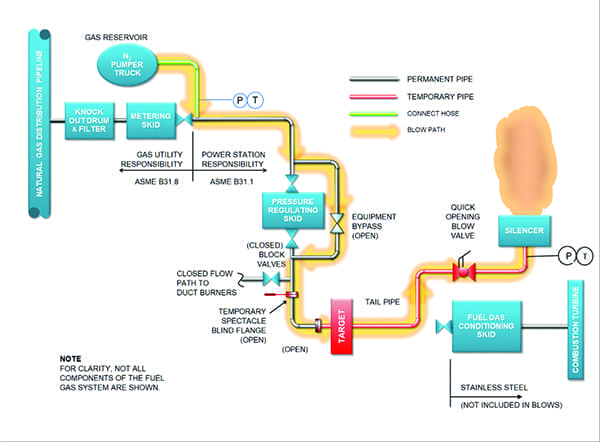If you're remodeling your home or upgrading your appliances, you may need to relocate your gas pipe. This type of project requires skilled professionals to ensure that it's done safely and correctly. In this blog, we'll discuss the process of moving a gas pipe and offer some important tips to keep in mind.

Why Move A Gas Pipe?
There are several reasons why you may need to move a gas pipe:
1. Renovations - If you're remodeling your home, you may want to add a new gas-powered appliance (like a cooktop) in a new location.
2. Upgrades - If you're upgrading your existing gas appliances, you may want to move your gas pipe to accommodate a new model.
3. Safety Reasons - If your current gas pipe is too close to a combustible material or source, it may need to be moved to meet safety requirements.
The Process of Moving A Gas Pipe
Moving a gas pipe is a complex process that involves several steps. Here's what you need to know:
1. Hire A Professional - This is not a DIY project. Hire a licensed and experienced plumber or gas technician who specializes in gas piping installation and repair. If you attempt to install or move a gas pipe yourself, you could put yourself and your family in danger.
2. Get A Permit - Before you start the project, you'll need to obtain a permit from your city or town. A licensed professional can help you with this process.
3. Shut Off The Gas - The first step in moving a gas pipe is to shut off the gas supply to your home. This will involve turning off the main gas valve, which is typically located near the gas meter.
4. Disconnect The Old Pipe - Your plumber will need to disconnect the old pipe from the gas source and your appliances. They'll also cap the ends of the old pipe to prevent gas leaks.
5. Install The New Pipe - Your plumber will determine the best route for the new gas pipe and install it. They'll also connect the new pipe to your appliances and to the gas source.
6. Test For Leaks - After the new pipe is installed, your plumber will test it for leaks. This is a crucial step in ensuring that the new gas pipe is safe and meets local codes.
Tips To Keep In Mind
Here are some important tips to remember when moving a gas pipe:
1. Work With A Licensed Professional - Don't attempt to move a gas pipe yourself. A licensed professional has the necessary training, tools, and experience to handle the job safely and correctly.
2. Get A Permit - Make sure you obtain the necessary permit from your city or town before starting the project. This will ensure that the work is done to code and is safe.
3. Consider Your Appliance Needs - When relocating a gas pipe, consider your appliance needs. Will you need to add new gas lines? Will your current appliances need to be reconnected?
4. Test For Leaks - After the new gas pipe is installed, make sure it's tested for leaks. This is a crucial step in ensuring that the new gas pipe is safe and meets local codes.
Conclusion
Moving a gas pipe is a major project that requires the help of a licensed professional. The process involves shutting off the gas, disconnecting the old pipe, installing the new pipe, and testing for leaks. If you're considering moving a gas pipe, make sure you hire a licensed plumber or gas technician with experience in gas piping installation and repair. By doing so, you can ensure that the job is done safely and correctly, and that your home remains safe and comfortable for years to come.